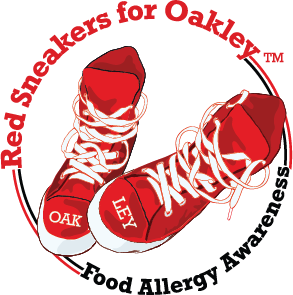Do You Have a Nightshade Allergy?
Nightshades are foods in a family of flowering plants including some types of trees, vines, herbs, and crops.
Being allergic or sensitive to nightshades is not as common as reacting to allergens contained in the Big 9. Still, some people may experience allergic reactions to the high levels of alkaloids in nightshades.
Alkaloids are a type of phytochemical, which is a naturally occurring compound produced by plants, especially plants in the nightshade family. Plants produce alkaloids to protect themselves from mold, disease, and pests. The common types of alkaloids found in plants are: solanine, nicotine, and capsaicin.
Most people experience no negative health effects after eating nightshades because the alkaloids are eaten in small amounts relative to body size. However, the concentration of alkaloids is higher in the stems, leaves, and unripe vegetables; and some people may react to the fruit or vegetable itself instead of the alkaloid.
Here are some of the most popular nightshade fruits, vegetables, and spices:
Tomatoes
Potatoes
Hot Peppers
Bell Peppers
Eggplant
Gogi Berries
Blueberries
Tomatillos
Cayenne Peppers
Chili Pepper Flakes
Chilli Powder
Paprika
Symptoms
Symptoms of a nightshade allergy include congestion, skin rash, itching, redness, and digestive problems. Most people experience no negative health effects after eating nightshades because the alkaloids are eaten in small amounts relative to body size. Some people may experience an allergy to the fruit or vegetable itself instead of the alkaloid present in it. For those with a sensitivity or intolerance to nightshades, the symptoms primarily affect the digestive system. Some intolerance symptoms include heartburn, bloating & gas, nausea & vomiting, or diarrhea.
Food Substitutions for Nightshade
Instead of tomato sauce, use olive oil, pesto, and Alfredo sauce
Replace blueberries and goji berries with raspberries, strawberries, cranberries, or cherries
Instead of eggplant, use shitake or portabella mushrooms
Instead of bell peppers, use radishes, carrots, Swiss chard, onion, or celery
Replace white potatoes with sweet potatoes, squash, radishes, cauliflower, turnips, or parsnips
Instead of paprika, cayenne, chili powder, or red pepper flakes, add black pepper, white pepper, cumin, basil, oregano, turmeric, or parsley
Instead of avoiding foods because you suspect you have an allergy, it is best to talk with your healthcare professional. They will help determine if you do have an allergy and which foods to avoid. Avoiding foods on a self-diagnosis can cause more harm than good, especially when you cut off food groups that could be actually beneficial healthwise.
Source: https://www.verywellhealth.com/nightshade-allergies-5211335

